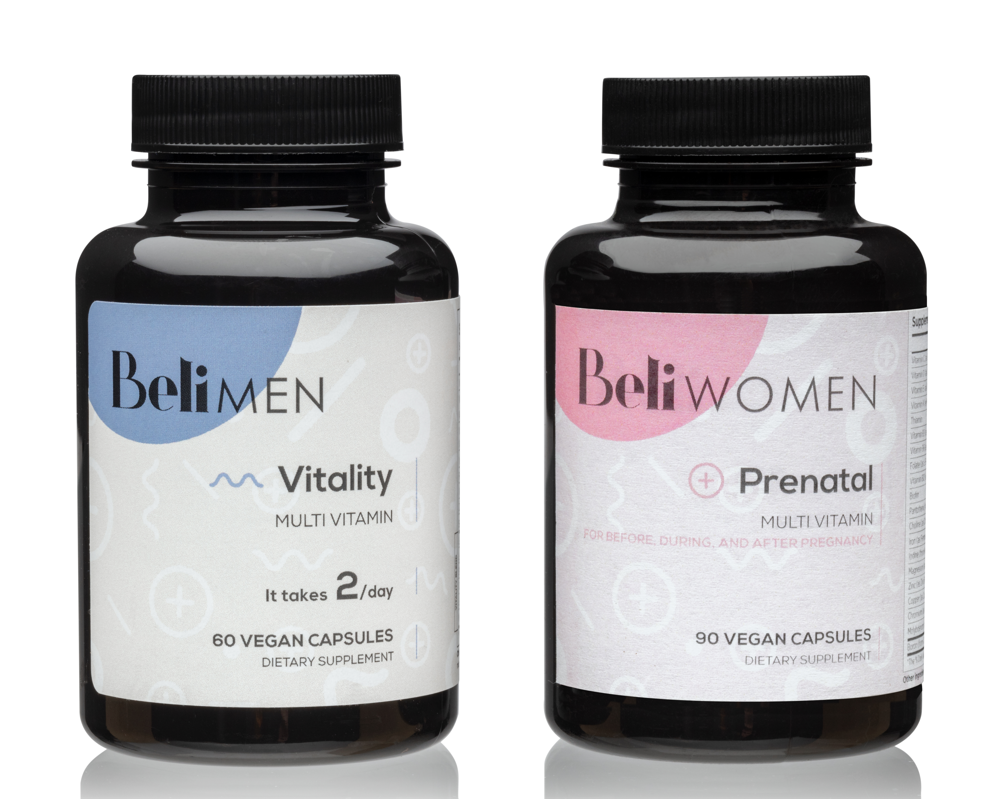The Problem: Low Sperm Count – It’s More Common Than You Think
You might assume everything’s in good working order, but the truth is, low sperm count is a problem that affects millions of men worldwide. According to the World Health Organization, infertility affects 15% of reproductive-age couples globally, and about 40-50% of the time, male infertility is the culprit . Sperm count has been declining by over 50% in men across North America, Europe, and Australia since the 1970s, due to factors ranging from lifestyle habits to environmental pollutants . Yet, most men are unaware of the issue until it becomes a problem when trying to conceive.
Do You Have Low Sperm Count? Here's How to Know
Low sperm count means that the fluid (semen) you ejaculate during orgasm contains fewer sperm than normal. For reference, a normal sperm count is around 15 million sperm per milliliter of semen or higher. A low sperm count, known as oligospermia, falls below this threshold, making it harder to conceive.
Signs and Symptoms
Unlike other health issues, low sperm count doesn’t come with glaring symptoms, but there are a few indicators to watch for:
- Problems with sexual function: This can include a lower sex drive or difficulty maintaining an erection (erectile dysfunction).
- Pain, swelling, or a lump in the testicle area: This could indicate an underlying issue affecting sperm production.
- Decreased facial or body hair: This may signal a hormonal imbalance, potentially affecting sperm production.
- Issues with conception: If you and your partner have been trying to conceive without success for more than a year, it may be time to check your sperm count.
What Causes Low Sperm Count?
Several factors can lead to low sperm count, from lifestyle choices to medical conditions:
Health and Lifestyle Factors:
Smoking and excessive alcohol consumption have been linked to lower sperm counts .- Obesity and poor diet also negatively impact sperm health .
- Stress can interfere with the hormones that help produce sperm.
- Exposure to toxins like pesticides, heavy metals, and chemicals can reduce sperm production .
- Heat exposure from frequent hot tub use, saunas, or even laptops can affect sperm count.
- Varicoceles: Enlarged veins in the testicles can prevent normal sperm production.
- Hormonal imbalances: Problems with testosterone or other hormones can cause sperm count issues.
- Infections: Certain infections, like STDs or urinary tract infections, can affect sperm health.
Boosting Your Sperm Count: What Can You Do?
If you suspect you may have a low sperm count, the good news is that there are several steps you can take to improve it. Here’s a detailed look at lifestyle adjustments and medical options.
1. Improve Your Diet
Eating a diet rich in antioxidants is essential for improving sperm count and overall sperm health. Foods high in zinc, vitamin C, and omega-3 fatty acids are particularly helpful:
- Zinc: Found in meat, shellfish, and dairy, zinc is crucial for testosterone production and sperm development.
- Vitamin C: Increases sperm motility and overall count. Include citrus fruits, strawberries, and leafy greens in your diet.
- Omega-3 Fatty Acids: Found in fish and flaxseeds, these support hormone production and sperm development.
2. Exercise Regularly
Moderate physical activity can significantly improve sperm count. According to studies, men who engage in regular physical exercise have better sperm parameters than those who are sedentary . Just remember, moderation is key—excessive exercise or endurance sports can have the opposite effect by causing oxidative stress in the body.
3. Limit Alcohol and Quit Smoking
Both smoking and excessive alcohol consumption have been linked to decreased sperm count and motility . Reducing your intake or cutting these habits entirely can lead to an improvement in sperm health over time.
4. Manage Stress
Chronic stress can interfere with the hormones needed to produce sperm. Incorporating stress-reducing activities like yoga, meditation, or even hobbies can significantly improve your fertility health.
5. Consider Supplements for a Boost
Sometimes diet alone isn’t enough to provide the vitamins and minerals essential for boosting sperm count. This is where supplements come in.
Beli Men Vitality is formulated specifically to address male reproductive health. Packed with nutrients like zinc, vitamin C, L-carnitine, and CoQ10, Beli Men not only supports testosterone production but also supports sperm motility and count. Taking Beli regularly ensures that your body is getting the right combination of vitamins and minerals that can directly influence your fertility health.
6. Avoid Heat Exposure
Keep your testicles cool! Prolonged exposure to heat, whether from saunas, hot tubs, or even placing your laptop on your lap, can reduce sperm production. Wearing loose-fitting underwear and avoiding prolonged heat exposure will help maintain an ideal temperature for sperm production.
When to Seek Help
If you and your partner have been trying to conceive for more than a year without success, it’s a good idea to consult with a healthcare professional. A semen analysis can provide you with detailed information about your sperm count, motility, and morphology. Many at-home fertility tests are now available, including options from brands like Beli, allowing you to take control of your reproductive health from the comfort of your home.
Final Thoughts: Take Control of Your Fertility
While the topic of sperm health might not be one you’ve thought much about, it’s important to recognize that it plays a critical role in your overall fertility. Making some simple changes to your lifestyle, diet, and daily habits can have a major impact. And with the help of supplements like Beli Men, you can give your sperm count the support it needs to thrive.
Don't leave it to chance—take action today and invest in your reproductive health!




